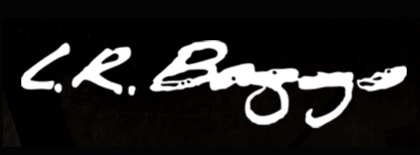It’s Tuesday Muse-day, Wholetonians!
This has been quite a week for amazing testimonies, my friends. Every day, I awaken to a bevy of spectacular emails and social media posts from people around the globe, but this last week was truly phenomenal. Make sure you visit my Wholetones Facebook page (@wholetonesmusic) or read the countless testimonials at www.wholetonesmusic.com to see what I mean!
I am also pleased to announce that the audiobook of “Wholetones: The Sound Of Healing” is now available here! I had a wonderful time narrating it and hope you enjoy being read to as much as I enjoyed reading to you. This brings me to my weekly musing, “Make Your Words Sing.”
Communication in any form is an art. A great song or musical composition has the ability to captivate its listener, as does a masterfully composed piece of literature. A few months ago, while on a business trip to San Diego, California, I was walking and happened to notice inscriptions on the sidewalk beneath my feet.
"The deep rumbling of discontent that we hear today is the thunder of disinherited masses. Rising from dungeons of oppression to the bright hills of freedom in on e majestic chorus.”
As I stopped to read the engraved words, tears filled my eyes! Each square of the sidewalk for at least 50 feet contained some of the most eloquent and heartfelt words I have ever encountered outside of the Bible. When I reached the final segment, the author’s name was revealed—it was Abraham Lincoln! A man who taught himself to read by oil lantern eventually commanded the English language like no other. Lincoln made his words sing. This type of writing is a gift. When you read literature by someone who is graced with the ability to make you see, hear, and feel with his/her words, you want to finish such a work in one sitting. When I read the works of Abraham Lincoln, I find it difficult to put the book down.
Words and music in their most elemental form are frequencies, so when they are excellent, we resonate with them. One of the most disturbing developments of our modern culture is the “dumbing down” of our English language. It is probably more obvious to those of us who read classic novels and prized literary works; nevertheless, it should be at the very least a mild concern for anyone desiring to communicate effectively. I cannot tell you how many times in the last few years I have seen news services and heard news anchors and television personalities butcher the English language. That is both surprising and tragic given the very nature of reporting the news, which is, at its core, communication! Here are just a few of the blatant linguistic “faux pas” that have become prevalent in today’s culture:
- “Irregardless” - the proper word is, “regardless.”
- “Giving 110%” - there is only the possibility of giving 100%.
- “Mou-in” - the proper word is: “mountain.”
- “But-in” - the proper word is “button.”
- “What up?” - the proper phrase is“What’s up” or “What is going on?”
I think you get my point! Now, let’s think on a broader scale. I am married to a woman of Colombian descent. Had she learned English today, I can only imagine the nightmare it would have been for her. When people come to America to become legal citizens and have to learn the English language with our slang, mispronunciations, and acronyms … is it still a language that sings, or merely mumbles? In today’s public education, “Common Core” is espoused and cursive writing is no longer taught. What are we losing in this transition? Unfortunately, this problem is becoming global. Many countries, including my heritage, Ireland, no longer teach their native language in school. I know it sounds like I am nit-picking, but I feel it is tragic when any nation allows its’ ethnicity to be erased.
I want to challenge all of my readers (especially those with children) to embrace a “spectacular vernacular” and develop the art of making your words sing. A proper command of your native language will give you quite an advantage in life, and will allow your words to become literal works of art. Say what you mean, and mean what you say.
Be Whole,
Michael S. Tyrrell






